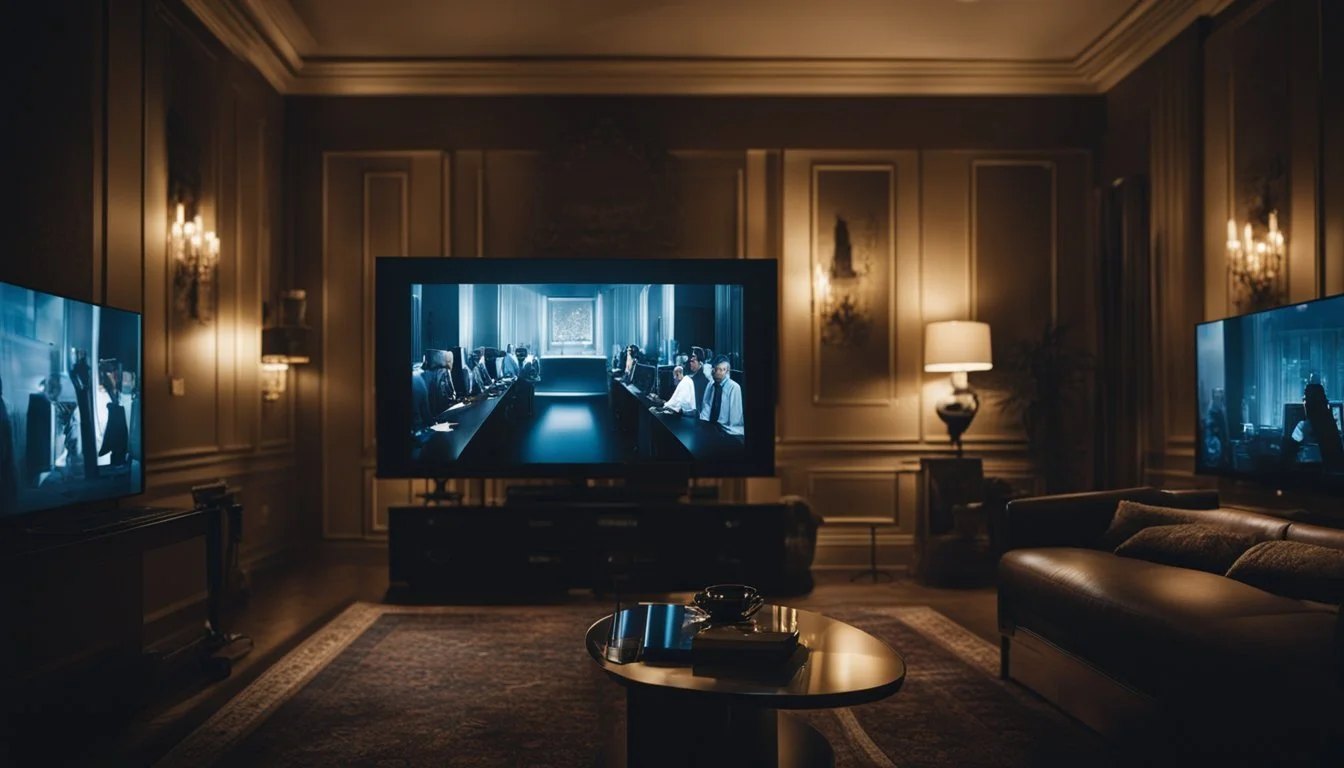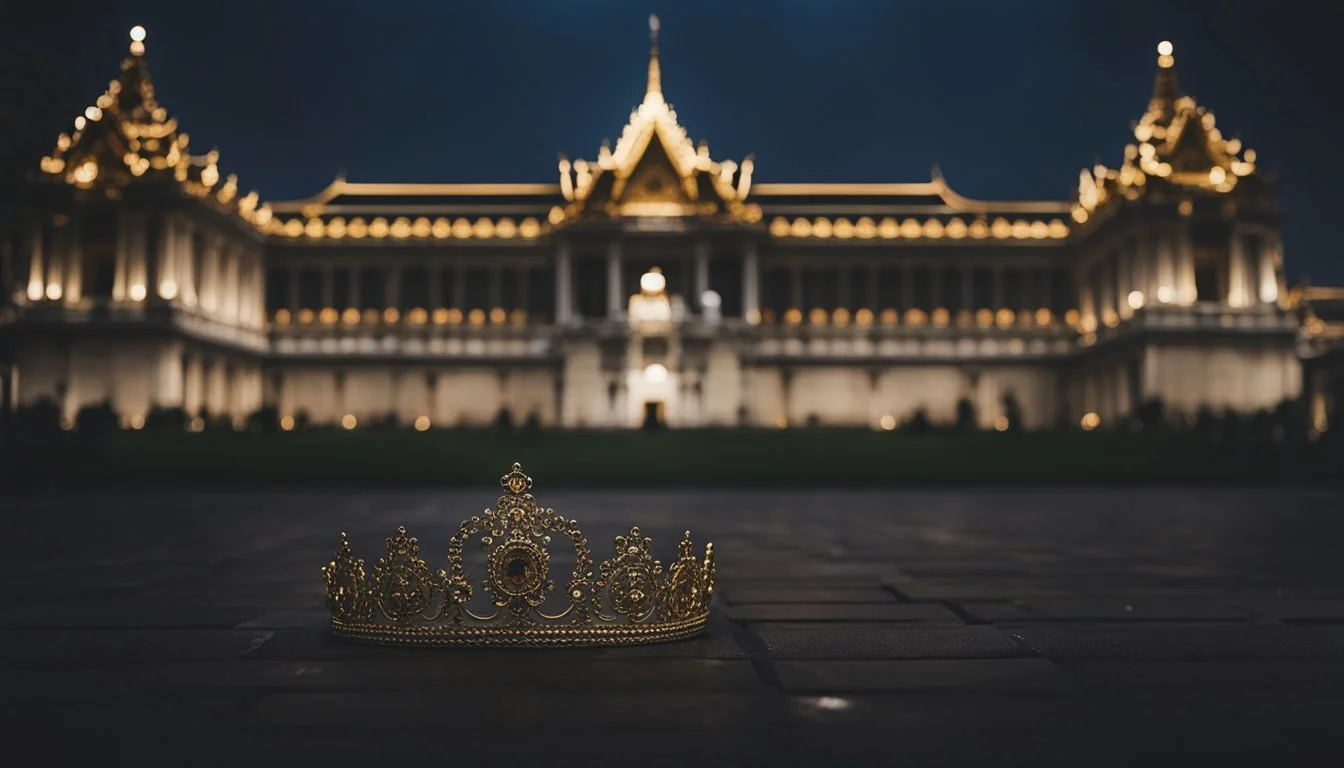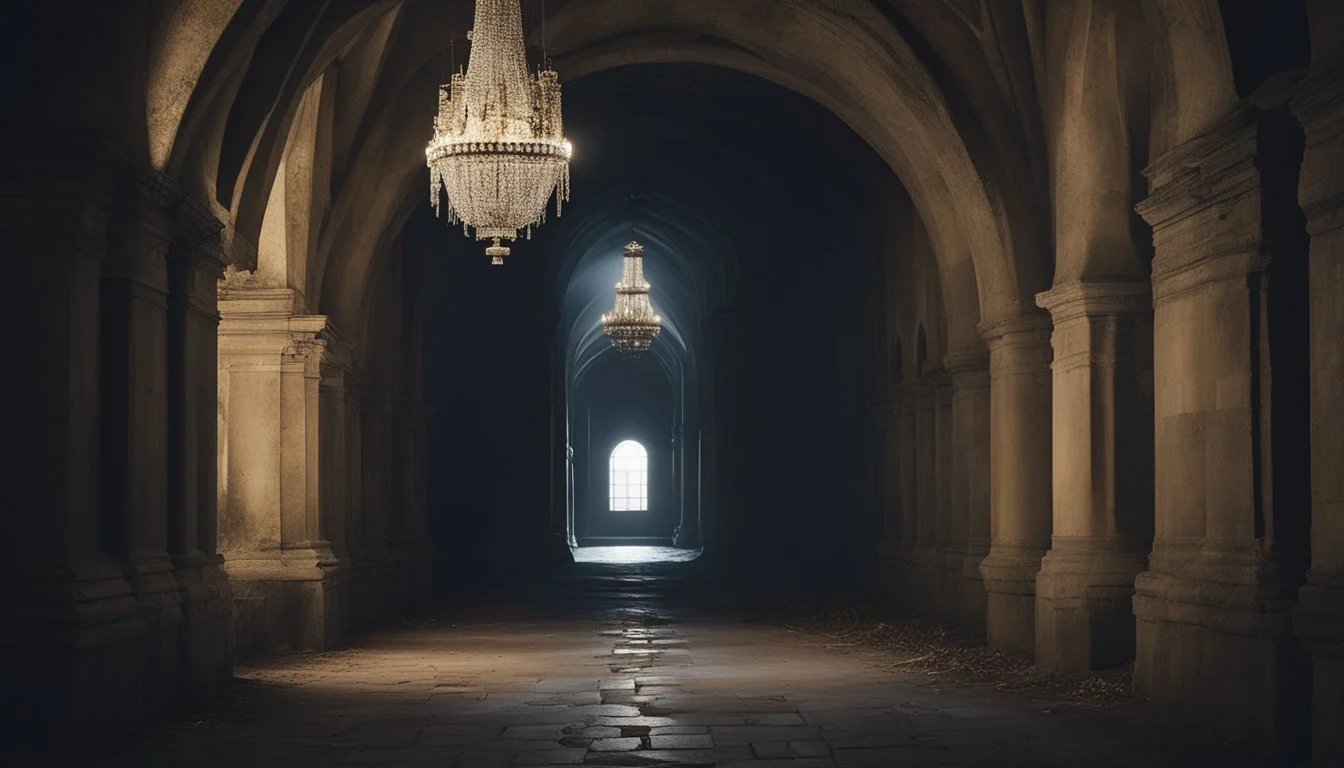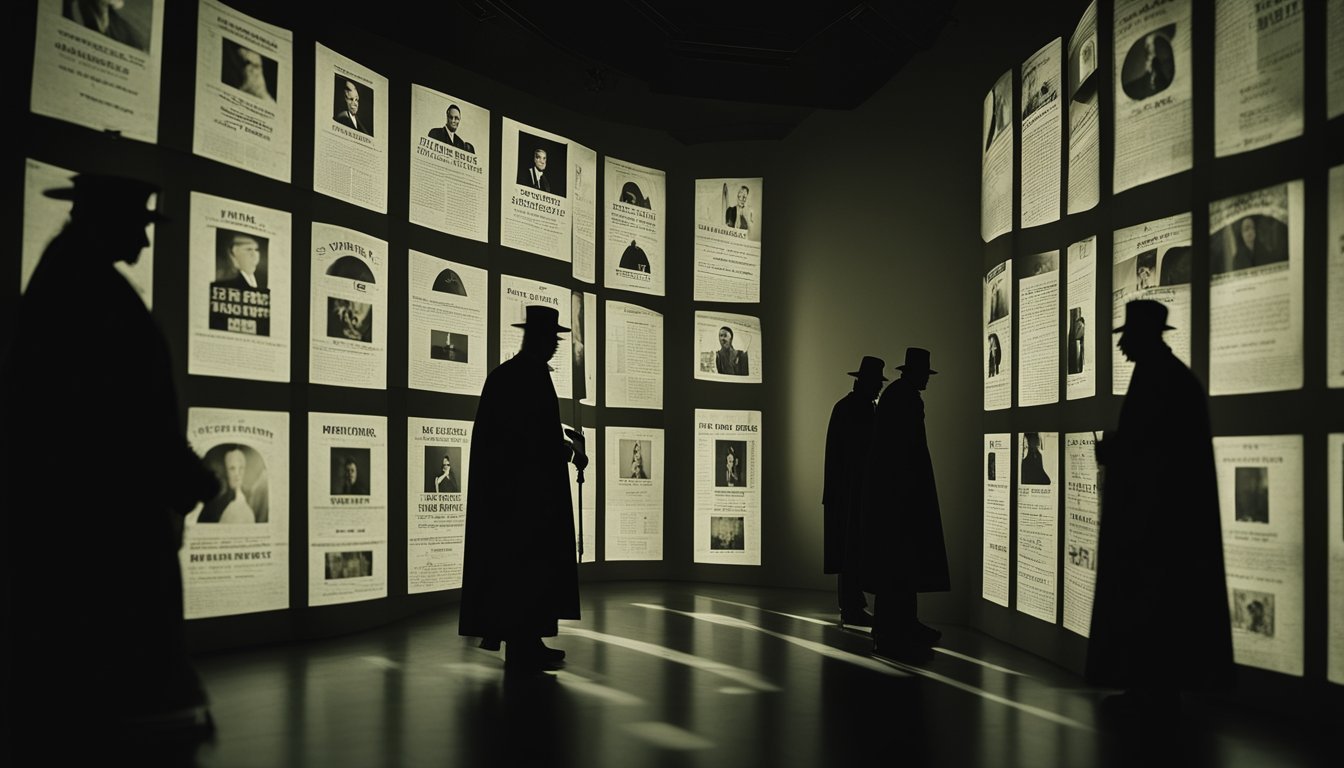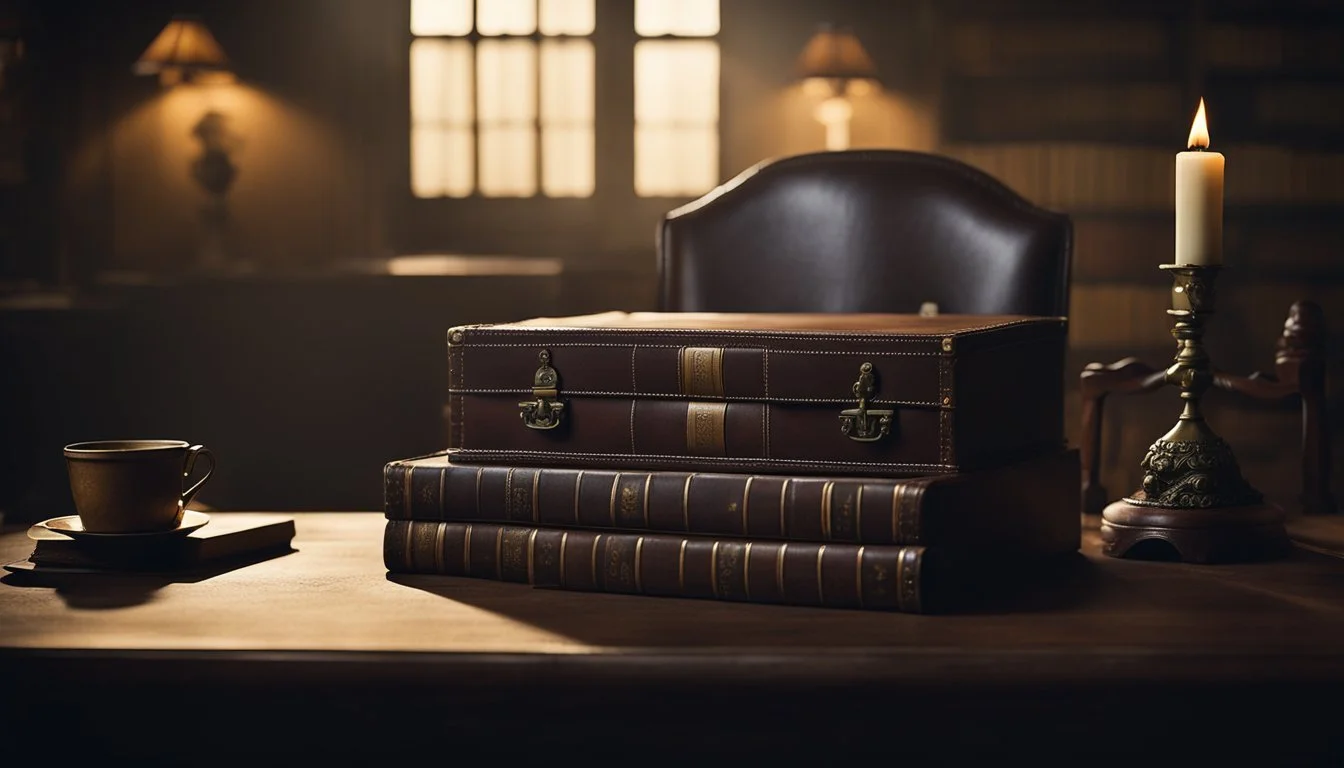5 Haunting True Crime Documentaries About Royalty
Chilling Tales from Noble Lines
Stories of royalty often come shrouded in grandeur and mystique. While many tales celebrate royal splendor, some delve into darker territories that reveal chilling truths about the elite.
Exploring true crime documentaries about royalty provides a uniquely captivating lens into the hidden blemishes behind regal facades. These documentaries peel back the layers of opulence to uncover corruption, betrayal, and intrigue that have fascinated the world for centuries.
1) 'The Murder of King William II' (2024)
King William II of England, also known as William Rufus, met a mysterious and violent end in 1100. He was killed by an arrow while hunting in the New Forest. The official account deemed it an accident, but speculation about foul play persists.
The documentary explores the potential motives behind the king's death. Some historians argue that his younger brother, Henry I, who succeeded him, might have been involved.
Reconstructions and expert interviews shed light on the political and personal dynamics at play. Intrigue, power struggles, and animosity within the royal family are meticulously examined.
The film combines dramatic reenactments and historical analysis. It aims to unravel the mystery surrounding this controversial death that has puzzled scholars for centuries.
For more information about the documentary, visit IMDB.
2) 'The Romanovs: An Imperial Family's Fall' (2003)
This documentary delves into the tragic end of Tsar Nicholas II and his family during the Russian Revolution. The Romanovs, comprising Nicholas II, his wife Alexandra, and their five children, were executed by Bolshevik revolutionaries in July 1918.
Their story is one of a 300-year dynasty brought to a sudden and violent end.
The film covers the family's final months in captivity, highlighting the tension and uncertainty they faced. It provides historical context, detailing the political turmoil that led to their demise. Archival footage and expert interviews paint a vivid picture of their lives and deaths.
'The Romanovs: An Imperial Family's Fall' offers a comprehensive look at one of history's most infamous royal tragedies. It provides insight into the impact of the Russian Revolution and the fate of the last Russian imperial family.
For more information, visit IMDb.
3) 'The Disappearance of Prince John' (2020)
'The Disappearance of Prince John' is a poignant documentary exploring the life and mysterious disappearance of Prince John, the youngest son of King George V and Queen Mary. Born in 1905, Prince John was diagnosed with epilepsy and was largely hidden from public view due to his condition.
The film delves into Prince John's isolated upbringing at Sandringham House. His life story is filled with emotional nuances, emphasizing the royal family's struggle between duty and personal care for their ailing child.
To understand the mysterious circumstances and the eventual disappearance of this young royal, 'The Disappearance of Prince John' provides rare insights through letters, family photographs, and expert interviews.
With a focus on how historical attitudes toward illness and disability impacted Prince John, the documentary sheds light on both the personal and societal challenges faced by the young prince.
For further details on this documentary, visit IMDb.
4) 'Marie Antoinette: A Royal Execution' (2019)
Marie Antoinette, the last Queen of France, faced one of the most tragic downfalls in royal history.
This documentary delves into her life from the grandeur of Versailles to her imprisonment and eventual execution during the French Revolution. Featuring reenactments and expert interviews, it paints a vivid picture of her final days.
With detailed accounts, the film explores the political and social turmoil that led to her demise. It also touches on her relationship with King Louis XVI and her infamous reputation among the French populace.
The documentary highlights significant events, such as her trial and the moments leading up to her execution. Viewers gain insights into the harsh realities of her confinement and the public's shifting attitudes towards the monarchy.
For more information, visit Wikipedia: 'Marie Antoinette: A Royal Execution'
5) 'The Infamy of Queen Victoria's Assassin'
Queen Victoria faced several assassination attempts during her reign, revealing the threats that surrounded her even at the height of her power. A notable attempt occurred on 27 June 1850, when the Queen was visiting her ailing uncle in London.
As she moved through the crowd, a man raised a gun and aimed directly at her.
This documentary delves into the details of that fateful evening, covering the motives and backgrounds of those who sought to end her life. The film provides a thorough account of the investigation, the public's reaction, and the eventual repercussions for the would-be assassin.
By highlighting the frequency and intensity of these assassination attempts, the documentary paints a vivid picture of the danger and intrigue that marked Victoria’s reign.
Find more information on IMDb.
Historical Context
Royalty has played a pivotal role in shaping societies and their histories, and the public's fascination with these figures often stems from their influence and the dramatic events surrounding their lives.
The Role of Royalty in History
Royalty has been central to the governance and cultural evolution of many nations. Kings, queens, and other royal figures have held immense power, influencing laws, wars, and religious practices.
Throughout history, they have been patrons of the arts and sciences, funding significant projects and advancements. Monarchies have established and maintained social hierarchies, with nobles and commoners knowing their places within the societal structure.
Several notable historical events involve royalty, such as the English Civil War, the French Revolution, and the establishment of parliamentary democracies. These events often highlight the tension between royal authority and emerging democratic ideals, leading to shifts in power structures and governance.
Public Fascination with Royalty
The public has long been captivated by the lives of royal figures, drawn to their wealth, power, and often tumultuous personal lives. Scandals, romances, and rivalries within royal families fuel a constant stream of public interest and media coverage.
Royal ceremonies, such as coronations, weddings, and funerals, attract widespread attention and are often steeped in tradition and pageantry. These events provide glimpses into the often secretive world of royalty.
This fascination is also reflected in literature, movies, and documentaries, which explore the complexities and intrigues of royal life. True crime documentaries about royalty combine this allure with the darker aspects of history, offering compelling narratives that continue to engage audiences worldwide.
Psychological Aspects
In exploring true crime documentaries about royalty, it is essential to consider the psychological factors that contribute to such crimes and how public perception and media influence play a role.
Factors Leading to Crime in Royal Families
Royal families often experience intense pressure due to their public roles and expectations. This pressure can lead to psychological strain, creating circumstances where dysfunctional behaviors may emerge.
Mental health issues, such as depression or paranoia, may be exacerbated by the lack of privacy and constant scrutiny.
Holding power within a confined circle, some individuals misuse their authority, possibly leading to criminal acts.
Additionally, interpersonal conflicts within the royal family can escalate, influenced by historical grievances or competition for favor and status.
These complex dynamics often remain hidden, heightening curiosity and fascination for viewers.
Public Perception and Media Influence
The media plays a significant role in shaping public perception of crimes involving royalty.
Documentaries and news outlets highlight these stories due to their rarity and the celebrity status of those involved.
Sensationalized coverage can influence the public’s understanding, often focusing on scandal rather than context.
Public interest in royal scandals is fueled by a combination of curiosity and the cultural significance of royals.
Media representation can sway opinions, leading to either sympathy for or vilification of the involved parties.
Moreover, the storytelling techniques used in documentaries can emphasize certain narrative angles, impacting viewers' interpretations of the events and individuals.
Case Studies and Analysis
True crime documentaries about royalty often reveal intricate details about the individuals involved and their broader implications. These analyses serve to provide insights into the recurring motifs and the effects on contemporary royal systems.
Common Patterns in Royal Crime Cases
Royal crime cases usually involve power struggles and betrayal. Historical accounts often reveal assassinations, kidnappings, and frauds within royal families.
Frequently, these crimes are driven by ambition and greed, with perpetrators seeking to alter the line of succession or acquire wealth.
Family dynamics play a crucial role, as internal disputes over inheritances and titles are common. Such cases show a pattern of secrecy and intrigue, where trust within the family is compromised.
Cultural and historical contexts also impact these cases, as societal norms and laws from the era influence the motivations and methods of the crimes.
Impact on Modern Royalty and Governance
Modern royal families and their governance structures have evolved due to past crimes. These documentaries often highlight how contemporary protocols aim to prevent similar events.
Today's royal institutions employ increased security measures and transparent succession laws to reduce vulnerabilities.
Past crimes have led to a shift in public perception, where the mystique of royalty is under scrutiny. This transformation has pushed royals towards greater public accountability and charitable involvement to maintain their relevance and legitimacy.
Governance structures have also adapted, allowing for democratic elements to restrict absolute power and promote legal safeguards.

